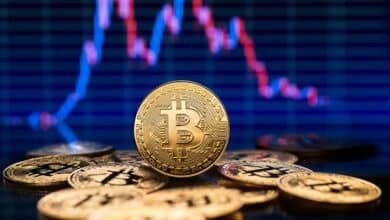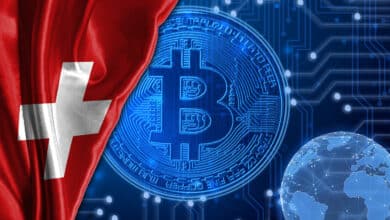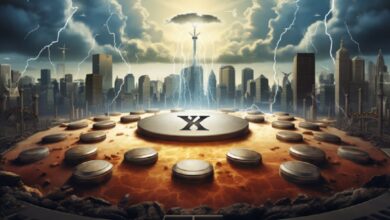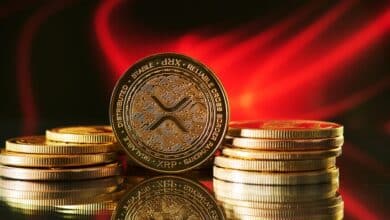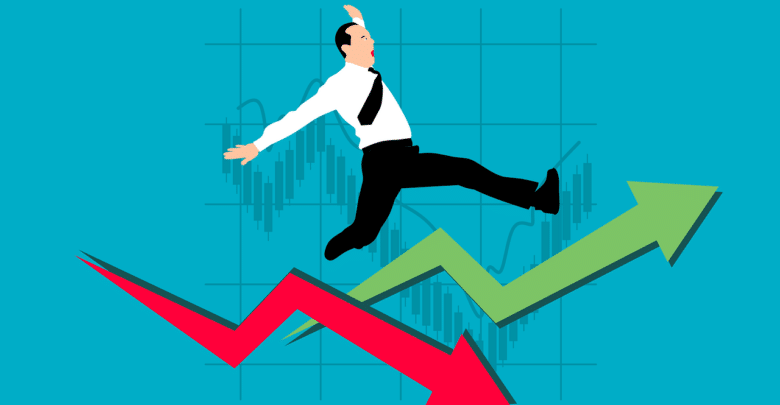
Introduction
Early human tribes had only a few hundred people living in them. However, as the human population increased and technology improved, people started to live in larger groups. After the industrial revolution, people other than royal families and nobles were also able to adopt an urban lifestyle. Therefore, the changes in living styles and standards gave rise to economic systems. Today, the world has different countries where government implements different types of economies. However, economic systems are not perfect, and they have to deal with issues like Recession and Depression.
What is an Economy?
The economy is the subject that deals with the forces like supply, demand, prices, and productivity. Economics is a very useful tool that allows analysts, financial experts, and governments to measure the needs of their people and maintain a stable financial ecosystem for the masses. With economic analysis, government officials can measure how much revenue the country is capable of generating. At the same time, the government can also use its resources to build roads, export food supplies, and conduct other trades that are crucial for the survival and development of its citizens.
What is an Economic System?
Talking about demand and supply for an individual or a company is not enough. A state has to take into consideration the biggest and smallest economic contributors to gather the perfect projections. Therefore, the government needs a standardized system for economic deliberations that provides it with the proper apparatus for running the country. However, an economic system is not just a financial management framework; it is also heavily influenced by political ideologies and philosophical tenets.
Types of Economic Systems
Capitalism
Capitalism is a type of economic system where the government supports financial organizations and manufacturing businesses. It means that the government is focused on creating better opportunities for the growth and development of the private business sector.
Henceforth, the government can provide jobs, business opportunities, foreign investments, and collect taxes. The taxes are used to run the country and welfare projects such as roads, hospitals, schools, etc. The government is trying to make private ownership and distribution of capital easier.
Communism
Communism is also one rudimentary classification of an economic system. This type of economic system is based on the principles of ownership of the people and the labour. In a communist economy, the community of workers owns everything. People are not allowed to have private property such as real estate, and workers have access to all necessities of life such as education, health care, food, and housing.
However, the Communist economic system is often seen as fascist since the centralized power becomes very concentrated and stringent.
Socialism
Socialism is also based on the empowering of the labour force, but it is more relaxed in comparison to communism. In a Socialist economic system, the government does not stop people from owning private property. At the same time, the power of the government is not very concentrated since political leadership is elected on a democratic voting basis. In political sciences, socialism is a transitory phase that leads to communism.
Mixed Economic System
A mixed Economic system is a comparatively modern type of economic governance. The state that adopts a Mixed Economic system uses a combination of policies and principles from both capitalism and socialism. It means that the government actively encourages the distribution and ownership of private capital. At the same time, the government also provides communal benefits for its citizens, such as public schools, universal healthcare, different stipends for the handicapped, and others.
Major Economic Issues
The aforementioned economic classifications are the very rudimentary systems that are adopted and used by most sovereign nations in the 21st Century. The discussion on introducing, perfecting, updating, and editing the ideal economic systems is a centuries-old topic. When it comes to finding the perfect economic system, there is no one size fits all answer. Countries like USA and Switzerland thrive on Capitalistic values.
On the other hand, Communism is fairly popular and successful in regions like Russia and China. Despite the raving success of different economic systems, they still have some issues. Here are some of the most grave and common economic issues:
Economic Inequality
Economic Inequality happens when the gap between the rich and the poor keeps increasing in society. It happens because the economic system has flaws that only serve the interests of the rich and powerful. For example, imposing high-interest rates on loans can hurt the lower income classes while it keeps making the upper echelon richer at their expense.
Great Depression
Depression is a period of severe economic weakness. It happens when the economy of a county is unable to perform its normal functions, and the whole system crashes down. Great Depression is a severe and more caustic form of economic depression. It can see banks closing, people losing their houses, jobs, and businesses, and being unable to afford the necessities of life.
Hyperinflation
Inflation is the phenomenon of the prices of consumer goods increasing. Typically, the prices of all goods and services increase at a consistent yet slow pace which is seen as a mark of a healthy and booming economy. However, hyperinflation is the more dangerous form of inflation when the price hikes for consumer goods soar above the expectations and projections of the government.
Money Supply
Money Supply is an economic flaw where the legal tender of a country suffers from massive devaluation on account of an unwarranted increase in quantity. Money supply can give birth to a series of several other economic issues such as inflation, depression, recession, etc.
Public Debt
Public debt is a problem that happens when the government is unable to settle the debt it has borrowed from the people or foreign creditors. To collect funds for running a country, governments can issue bonds as promissory notes. However, if the government is unable to manage its finances properly on account of various circumstances, it is unable to repay the debt of the people, and it can cause big issues.
Recession
A recession happens when economic activity in a country slows down for a unit financial period, such as simultaneous quarters. The biggest issues resulting from the recession are unemployment and a drop in GDP (Gross Domestic Product). It can also cause companies to shut down or decommission their branches.
Stock Market Crash
The Stock Market is the heart of financial activity in any modern country. A stock market can crash on account of miscellaneous reasons such as foreign invasion, natural disasters, hyperinflation, global pandemics, or any other issues. The biggest investors and companies in an economy depend on returns from the stock market to keep their businesses running. Therefore, the Stock market crash is a major economic downturn.
Productivity Decline
If an agricultural country is unable to produce enough yields to import on account of reasons like drought, famine, or lack of rains, its GDP can crash down. In the same manner, any country can face an unwarranted decline in one of its major exports that results from a lack of productivity. Under such circumstances, one-track economies can suffer from massive repercussions and struggle to maintain their sovereign status.
What is a Depression?
It was really necessary to mention all the basic components that make up depression and recession. As mentioned before, Depression is a type of economic setback. Depression occurs when economic activity crashes for a long period. The key indicators of economic depression are a massive decline in GDP, endemic unemployment, and also drastic drop in productivity.
What is a Recession?
A recession is also a type of economic crash. However, recession lasts for a smaller duration in comparison to depression. It means that a recession can last for a few financial quarters. When the GDP of a country has kept declining for more than two consecutive quarters, it means that the economy is suffering from a recession. The US economy has suffered from more recessions in comparison to depression.
Key Differences Between Recession and Depression
At its core, depression and recession are very similar phenomena. However, it is clear that recession lasts for a smaller period, and it is generally less destructive in comparison to depression. Technically speaking, when the GDP experiences a drop for two quarters simultaneously, it is marked as a recession. On the other hand, if an economy suffers from a GDP drop for more than a year of an average 10% or greater decline, it converts into depression.
A Brief History of Recession
It is important to know the historical timeline of the recession to learn about its causes and take lessons. For the USA, here are some of the major recession periods in the last 30 years:
Recession 1990-1991: Caused by Federal Reserve increasing the interest rates to combat inflation, unprecedented increase in oil prices, and pessimism among consumers.
Recession 2001: Crash of dot com bubble, 9/11 attacks.
Great Recession 2007-2009: Fall of the US housing market, oil and food price inflation, and bankruptcy of biggest corporations in the world such as Fannie Mae, Bear Stearns, Lehman Brothers, and AIG. Furthermore, the downfall of the global automobile industry, the $787 stimulus package, and the Dow Jones Index crashed to its lowest point.
COVID-19 Recession 2020: Break out of COVID-19 virus, large-scale social isolation, supply chain disruption, and 24 million job losses in the USA.
What Happens During a Recession
When a recession happens, the business activity in the country starts to diminish at a dangerous pace. Therefore, businesses closed down, and as a result, people lost their jobs. When manufacturers are unable to maintain their productivity, there is a shortage of food and other products. As soon as supply goes down, prices inflate for consumer products. At the same time, people panic and try to hoard goods which drives the demand higher, making things worse.
On the other hand, the government tries to use tactics like printing more money to encourage people to save less and spend more. However, more money means that the legal tender is devalued, and it can increase the inflation pressure for a temporary period. At the same time, the stock market suffers from a lack of productivity.
Meanwhile, when the government increases the interest rates to reverse quantitative tightening, corporations, people, and startups are unable to get loans for expanding operations, purchasing houses, or maintaining their operations.
A Brief History of Depression
Economic depression is a more complicated and exacerbated form of recession. Depression is confirmed when a country is unable to meet its required GDP quota for more than a year. Depression can be a result of enormous issues such as wars, natural disasters, and pandemics.
However, in the absence of any major economic shocks, if a country is still suffering from economic depression, it points towards serious issues like corruption, lack of qualified political leadership, a deeply flawed economic system, and lack of education among citizens. Here is a summary of major depression periods in US history:
Free Banking Era Great Depression (1836-1929): From 1837 to 1862, banks in the USA acted as private financial enterprises. If a bank goes bankrupt, the money of the account holders also goes away with that. In 1863 Congress passed National Banking Act, and in I933, Federal Deposit Insurance Corporation was formed. These measures make the banking system reliable and risk-free for account holders.
Depression 1920-1921: It was the result of economic destruction, and financial losses that happened during World War I. 1920 is also considered one of the most deflationary years in US history.
Great Depression 1929: The Great Depression was a direct consequence of the Second World War. Until the COVID-19 recession, the GDP decline never went as close to the drop during the WWII depression.
What Happens During a Depression
It is already clear that depression is very much like a recession, but it is only a much worse economic ailment. Here are some visible signs of an economy that is suffering from depression:
Depression is not a direct economic disorder. Depression strikes when the recession becomes uncontrollable or worsens. It means that an economy is already suffering from recession before it turns into depression.
The unemployment rates in the country can go from bad to worse. It means that the rate of unemployed people within a quarter increases faster and grows bigger during the depression.
Inflation is already persistently high during a recession. However, it is more likely that during a depression, inflation can also progress into its aggravated form and turn into Hyperinflation.
The real Estate market can take a direct hit from the onslaught of depression. People and businesses are unable to purchase any properties, and the revenue from the housing sector drops exponentially.
Credit and Debit defaults become a more frequent phenomenon during the depression. However, since interest rates are higher, credit scores decline. At the same time, the capital and account holdings are shrinking.
How to Deal with a Recession
Nowadays, social media influencers and economists alike are issuing a prediction about upcoming inflation. Therefore, many people are panicking and adopting drastic preventive measures that can increase the panic in the economy.
However, experts claim that rather than making abrupt decisions, it is best to calm down and learn about the best ways to deal with recession hit in an organized manner. Here are some of the best tips that will assist the reader in dealing with the recession scare effectively and productively:
Revisit Goals
Professional Financial planner and market analyst Brad Klontz advise people to stop reading macroeconomic news. Media houses have a business agenda, and their projections are biased to serve the interests of the financial companies that are backing them.
On the other hand, news agencies also tend to make their broadcast more sensational to attract a larger audience. Therefore, a person basing their assessment of the market on account of the news reports and articles can be misinformed and misguided. It is important to stick to facts and not get lost in translation.
Consult Financial Advisors
Many people have investment positions. Under healthy economic conditions, the risk of losses is relatively smaller; therefore, it is not a problem to self-manage. However, the recession is a period of economic uncertainty, and it is not a good idea to keep following the same path as before. Therefore, it is best to consult a professional broker and get their advice.
Prepare for Worst Case Scenario
People are either completely careless until they suffer from a massive financial loss, or they are overly anxious. Northwestern Mutual Planning and Progress Study report for 2022 suggests that around 54% of the independent financial investors in the USA confess that they are stressed out about their investment positions. The best thing to do is to draw a worst-case scenario and then take steps to tackle that.
Take a Break
A recession is a time that affects people emotionally and psychologically more than they realize. Even when a person has done everything to tackle the worst-case scenario, there is still no warranty on how the market will behave. Therefore, it is best to take a break and detach from the toxic market checking obsession. It will prevent the investors from making any impulsive stock purchases or sales.
Broaden Your Horizons
Investors should expand their perspective about their investment positions and how much return they can create over the long term. Rather than thinking about the profits within a year or a few quarters, the investors who use the bird’s eye view are more stable, relaxed, in control, and have the chance to make more profits.
Conclusion
Recession and depression are two related economic turmoils that are interconnected with each other. However, they both have some core differences and unique characteristics. At the same time, it is important to remember that both recession and depression, no matter how long or destructive, end eventually and is never universal or permanent.
Tokenhell produces content exposure for over 5,000 crypto companies and you can be one of them too! Contact at info@tokenhell.com if you have any questions. Cryptocurrencies are highly volatile, conduct your own research before making any investment decisions. Some of the posts on this website are guest posts or paid posts that are not written by Tokenhell authors (namely Crypto Cable , Sponsored Articles and Press Release content) and the views expressed in these types of posts do not reflect the views of this website. Tokenhell is not responsible for the content, accuracy, quality, advertising, products or any other content or banners (ad space) posted on the site. Read full terms and conditions / disclaimer.


